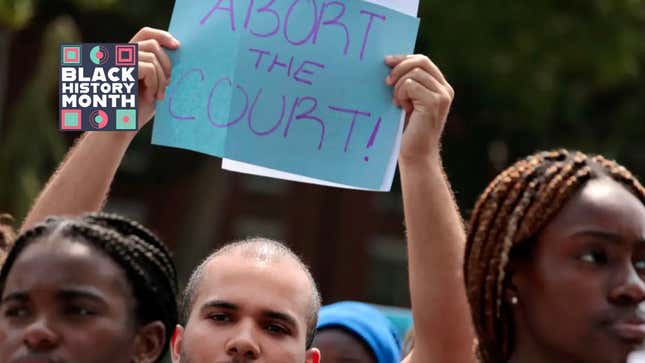
American society does not have a problem with race. Say what? No, that’s not a Nikki Haley quote.
Sadly, that’s the position of the Supreme Court of the United States (“SCOTUS”). Its decision last year, striking down affirmative action in higher education, denies our country’s racist history, the impact of that history and the practicalities of present-day discrimination; and asserts, somehow, that America does not have lingering racial inequalities.
Real talk, Fam. We know that America is not race-blind; but clearly some Supreme Court Justices have put blinders on to block the reality that the American status quo still works against Black freedom, parity and success. And don’t get it twisted – the impact of the court’s decision is not limited to college admissions. The decision has rippling impacts, across multiple platforms and environments. Among the top seven are:
No. 1: It Impacts Your Health
Programs designed to address the health disparities (such as the higher childbirth mortality rates of Black mothers) have been cut or are being challenged. For example, the Abundant Birth Project, a maternal health program that was designed to counter obstetric racism was cut after a lawsuit alleged that the program discriminates by giving stipends only to people of a specific race.
No. 2: It Impacts Your Job Possibilities and Job Security
The impacts of the SCOTUS affirmative action decision quickly rippled to corporate America. In the handful of months since the decision issued, six DEI executives at major corporations have been laid off; a number of Fortune 1,000 companies have made cuts to their DEI programs, and many large corporations, law firms and institutions have eliminated recruitment programs designed to enhance diversity in the workplace.
No. 3: It Impacts Your Entrepreneurship
Black businesses and entrepreneurs have historically been excluded from the flow of dollars from venture capital and private equity funds (in 2022, just 1 percent of venture capital dollars went to companies with Black founders). One effort to correct that glaring disparity, was the establishment of the “Fearless Fund” the nation’s first venture-capital firm that invests exclusively in tech and consumer-goods companies owned by women of color. But Fearless Fund is also the subject of a recent lawsuit, inspired by the SCOTUS ruling, alleging that it unlawfully discriminates. Apparently, the disparities that lead to the 99 percent —1 percent investment gap in the first place are acceptable, but any efforts to close that gap are not.
No. 4: It Impacts Your Legislature
Activist politicians have taken the SCOTUS decision and run with it. Over 40 bills have been introduced to limit DEI initiatives at public colleges. This is not just a regurgitation of the SCOTUS ruling, but rather an effort to “supersize” it by not just banning racial considerations, but prohibiting DEI efforts more broadly. Legislation has already officially passed in five states: Florida, North Carolina, South Dakota, Tennessee and Texas.
No. 5: It Impacts Your Children
This legislative effort is not limited to colleges and universities. It can impact our primary school aged children as well. Programs to ensure diverse student bodies and multicultural-anti-racist curriculum are being challenged. For instance, the elite, private school, Brentwood School in Los Angeles is being sued by parents who claim that diversity and equity programs are a breach of contract. They claim that an anti-racist curriculum is political and an attempt to indoctrinate their children.
Additionally, several state legislatures are also pursuing bills that would limit the discussion of race and gender in classrooms. These current efforts seek to erase or minimize Black Americans contributions.
No 6: It Impacts Your Entertainment Choices
Ripples have begun to suggest that diverse entertainment options may be reduced, as well. Several Black executives have exited their jobs at top entertainment studios. Additionally, a number of popular Black shows have been cancelled.
No 7: It Impacts Your Safety and Sense Of Belonging
DEI programs were developed to nurture environments that are welcoming and respectful to all people. Eliminating them signals not just hostility to their efforts, but also hostility to the people they were designed to protect.
And don’t think that they are done.
We have not yet even hit the one-year anniversary of the SCOTUS ruling. This is just chapter one. Keep your eyes wide open, ‘cause they’re not done yet.
Randi Bryant is a DEI specialist based in DC

